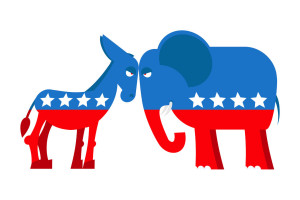Since 1996, the value of companies listed on American stock exchanges has increased from 105 percent of gross domestic product (GDP) to 136 percent of GDP, according to The Economist. (GDP is the value of all goods and services produced in the United States.)
During the same period, the number of companies listed on American exchanges has fallen from 7,322 to 3,671.
This fact might lead you to surmise that a few businesses have become dominant in their industries, but that’s not the case. Many companies are choosing to remain private rather than issue shares through an Initial Public Offering (IPO) and then trade on an exchange. Financial Times explained:
“Over the past 10 years the number of initial public offerings in the United States, and the total amount of equity raised by them, are way down on historical averages. If these had held there would have been more than 3,000 new public companies in the past decade. Instead, we have had fewer than half the number of IPOs.”
Why don’t the leaders of vibrant young companies want to issue shares? There may be several reasons:
- Technology-intensive businesses may need less capital.
- It’s relatively easy to raise money in private equity markets.
- Regulatory requirements for public companies increase litigation risk from securities class actions.
- Private markets are better at allowing companies to take a long-term perspective.
The reluctance to take companies public has fattened the world’s herd of unicorns – private firms worth over $1 billion that are not subject to public-company standards for accounting and disclosure. There are currently about 100 of them.
Sources:
http://www.economist.com/news/business/21721153-company-founders-are-reluctant-go-public-and-takeovers-are-soaring-why-decline
https://www.ft.com/content/9fcfb668-3409-11e7-99bd-13beb0903fa3
https://www.brainyquote.com/quotes/quotes/m/mahatmagan629304.html?src=t_mother






